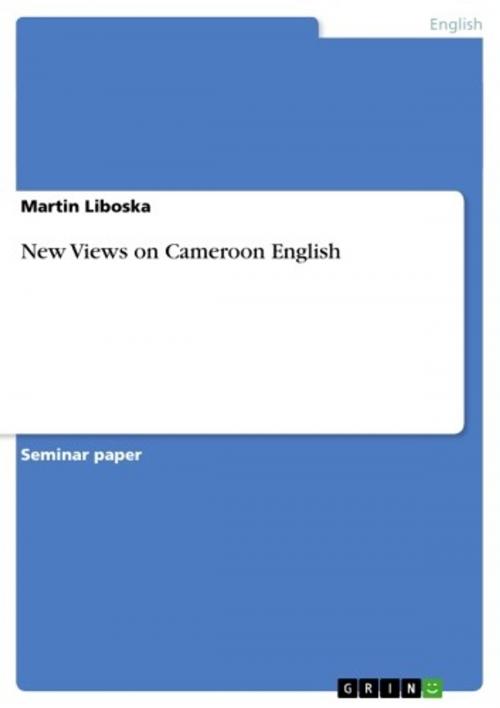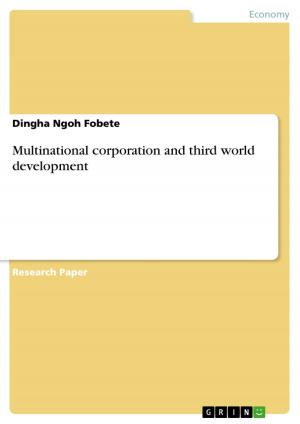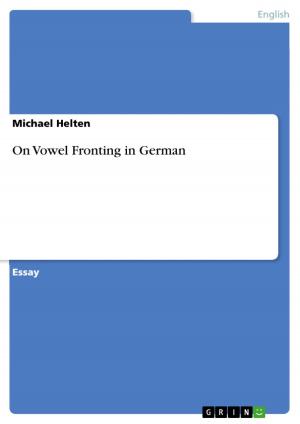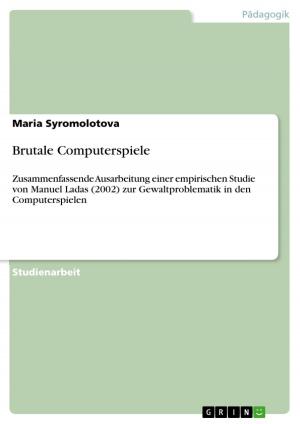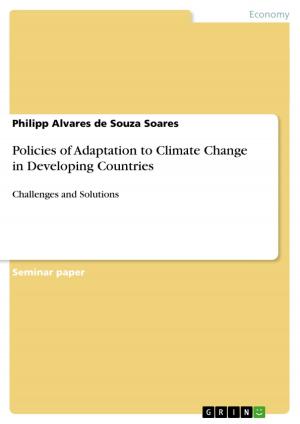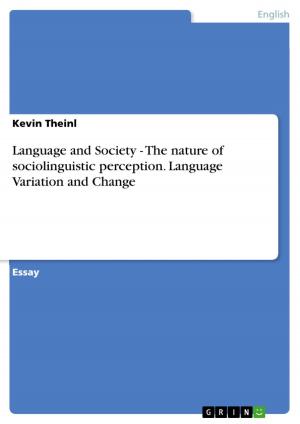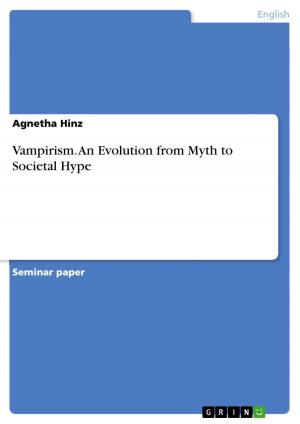| Author: | Martin Liboska | ISBN: | 9783638311144 |
| Publisher: | GRIN Publishing | Publication: | October 3, 2004 |
| Imprint: | GRIN Publishing | Language: | English |
| Author: | Martin Liboska |
| ISBN: | 9783638311144 |
| Publisher: | GRIN Publishing |
| Publication: | October 3, 2004 |
| Imprint: | GRIN Publishing |
| Language: | English |
Seminar paper from the year 2004 in the subject English Language and Literature Studies - Linguistics, grade: good+, University of Duisburg-Essen (Institute for Foreign Language Philology - Anglistics/American Studies), course: Hauptseminar 'English Varieties', 28 entries in the bibliography, language: English, abstract: English in West Africa is a complex field of investigation in the broader context of the 'World Englishes'. For many years, researchers have focused on linguistic characteristics of the numerous varieties of English in this area and mostly subsumed them under the label 'English in Africa' or 'West African English' (WAE) (e.g., Spencer 1971; Todd 1984b; Kachru 1995, Schmied 1991). Only little attention has been paid to the single national varieties1 including Cameroon English (henceforth CamE), which is in fact a very interesting case for sociolinguistic analysis due to its status as a co-official language beside French in a multilingual environment. This paper aims to show that new approaches to the national West African varieties, in this case CamE, try to fill the gap of comparative research in this linguistic area. The first part of this paper shall introduce the reader to the complexity of the linguistic situation in West Africa in general. The status, function, and use of English in the anglophone West African countries will be determined in chapter 2. Then I will give an overview about the development of the two most important varieties of English spoken there, namely Pidgin English (PE) and WAE. This chapter will therefore serve as a basis of knowledge for the third chapter, which is the main part of this paper and deals with the new approach of Hans-Georg Wolf (2001) to 'English in Cameroon'. By showing the results of the author's study about the extraordinary sociolinguistic situation in Cameroon on the one hand and the lexical peculiarities of CamE on the other hand, I will support his main thesis, which classifies CamE as a distinct national variety within the linguistic region of West Africa. Finally, I will draw a conclusion and give proposals for further studies in this field of investigation.
Seminar paper from the year 2004 in the subject English Language and Literature Studies - Linguistics, grade: good+, University of Duisburg-Essen (Institute for Foreign Language Philology - Anglistics/American Studies), course: Hauptseminar 'English Varieties', 28 entries in the bibliography, language: English, abstract: English in West Africa is a complex field of investigation in the broader context of the 'World Englishes'. For many years, researchers have focused on linguistic characteristics of the numerous varieties of English in this area and mostly subsumed them under the label 'English in Africa' or 'West African English' (WAE) (e.g., Spencer 1971; Todd 1984b; Kachru 1995, Schmied 1991). Only little attention has been paid to the single national varieties1 including Cameroon English (henceforth CamE), which is in fact a very interesting case for sociolinguistic analysis due to its status as a co-official language beside French in a multilingual environment. This paper aims to show that new approaches to the national West African varieties, in this case CamE, try to fill the gap of comparative research in this linguistic area. The first part of this paper shall introduce the reader to the complexity of the linguistic situation in West Africa in general. The status, function, and use of English in the anglophone West African countries will be determined in chapter 2. Then I will give an overview about the development of the two most important varieties of English spoken there, namely Pidgin English (PE) and WAE. This chapter will therefore serve as a basis of knowledge for the third chapter, which is the main part of this paper and deals with the new approach of Hans-Georg Wolf (2001) to 'English in Cameroon'. By showing the results of the author's study about the extraordinary sociolinguistic situation in Cameroon on the one hand and the lexical peculiarities of CamE on the other hand, I will support his main thesis, which classifies CamE as a distinct national variety within the linguistic region of West Africa. Finally, I will draw a conclusion and give proposals for further studies in this field of investigation.
